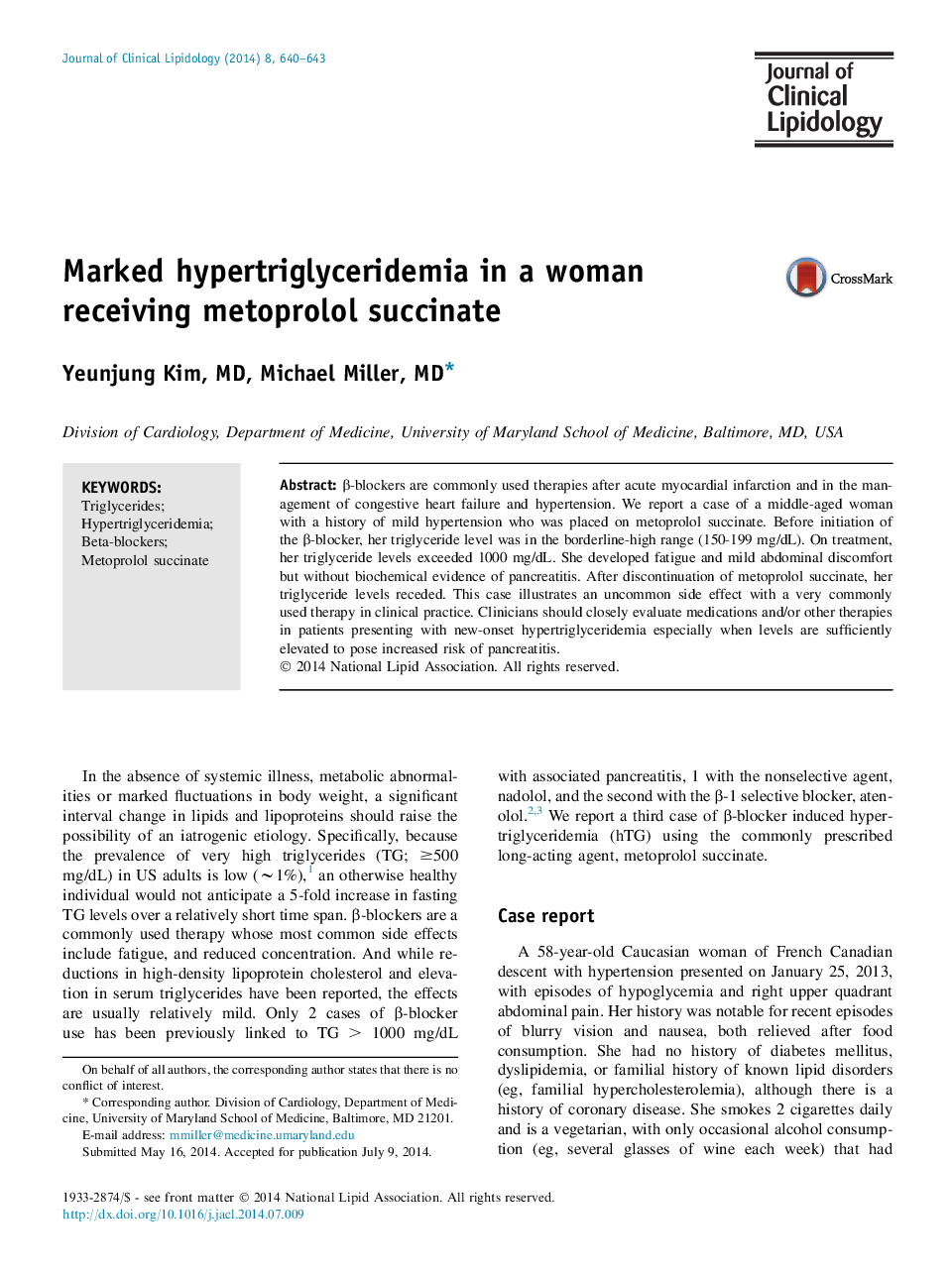| Article ID | Journal | Published Year | Pages | File Type |
|---|---|---|---|---|
| 5985849 | Journal of Clinical Lipidology | 2014 | 4 Pages |
âºBeta-blockers are a commonly used medication for hypertension, myocardial infarction, and heart failure.âºWe report a case of marked hypertriglyceridemia in a middle-aged woman receiving the long-acting beta-blocker, metoprolol succinate.âºIdentification of recent or new-onset hypertriglyceridemia should alert the clinician to rule out secondary causes including medications that may contribute to this process.
β-blockers are commonly used therapies after acute myocardial infarction and in the management of congestive heart failure and hypertension. We report a case of a middle-aged woman with a history of mild hypertension who was placed on metoprolol succinate. Before initiation of the β-blocker, her triglyceride level was in the borderline-high range (150-199 mg/dL). On treatment, her triglyceride levels exceeded 1000 mg/dL. She developed fatigue and mild abdominal discomfort but without biochemical evidence of pancreatitis. After discontinuation of metoprolol succinate, her triglyceride levels receded. This case illustrates an uncommon side effect with a very commonly used therapy in clinical practice. Clinicians should closely evaluate medications and/or other therapies in patients presenting with new-onset hypertriglyceridemia especially when levels are sufficiently elevated to pose increased risk of pancreatitis.
